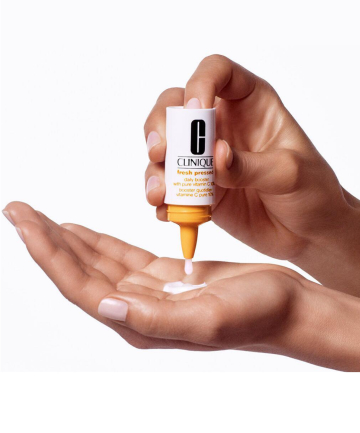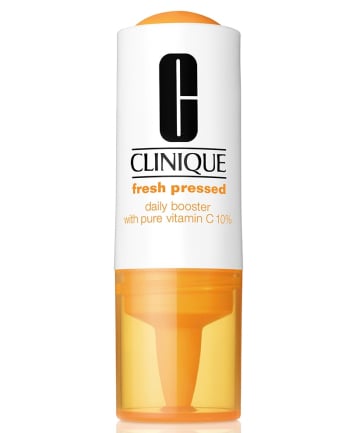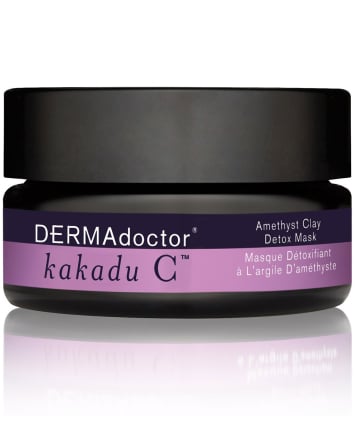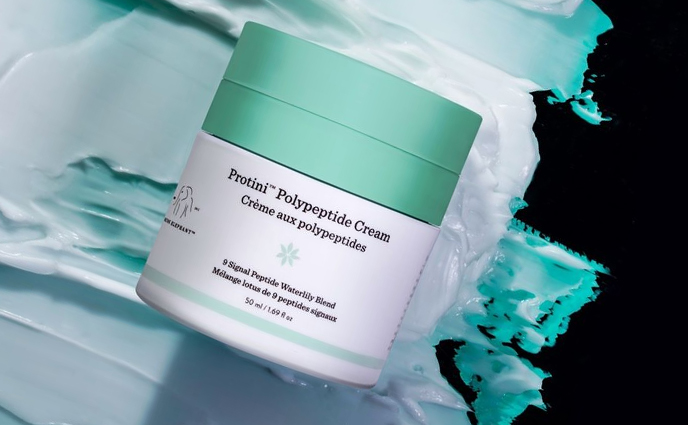The skin care industry is full of buzzy ingredients promising to transform an ordinary complexion into brighter, younger, healthier skin. While some of these ingredients are hot for only a season and fade away, there are a few tried-and-true game changers that skin experts depend on day in and day out. If you've ever been to a dermatologist or esthetician, it's likely you've heard of vitamin C skin care. Most of the time, vitamin C is recommended to brighten or even out uneven skin tones, but there is so much more to this powerhouse ingredient. We talked with Houston-based cosmetic and dermatologic surgeon Dr. Suneel Chilukuri about the benefits of incorporating vitamin C into a daily skin routine.
Vitamin C is an acid that has a myriad of benefits to address popular skin concerns. "Vitamin C does so much more than simply brighten the skin," says Chilukuri. "It's an antioxidant that fights free radicals, increases collagen deposition, improves the skin barrier and reduces existing skin discoloration." So if you're struggling with hyperpigmentation, a dull complexion or just want plumper, livelier skin, vitamin C is a great addition to your daily skin regimen.
Image via Imaxtree
This article originally appeared on TheFashionSpot.com
Vitamin C is an acid that has a myriad of benefits to address popular skin concerns. "Vitamin C does so much more than simply brighten the skin," says Chilukuri. "It's an antioxidant that fights free radicals, increases collagen deposition, improves the skin barrier and reduces existing skin discoloration." So if you're struggling with hyperpigmentation, a dull complexion or just want plumper, livelier skin, vitamin C is a great addition to your daily skin regimen.
Image via Imaxtree
This article originally appeared on TheFashionSpot.com
In order to ensure the vitamin C is delivering these benefits, the acid must be in a stabilized state. "There is only one vitamin C, which is L-ascorbic acid," says Chilukuri. "Other ingredients in products that may be advertised as vitamin C actually contain esters of vitamin C that are stable on shelf, but are minimally beneficial in the skin." Chilukuri explains that these esters include names like ascorbyl palmitate or magnesium ascorbyl phosphate, so beware of these types of ingredients if you're looking for the real deal.
Because the stability of vitamin C is so important, not only should you beware of ingredients, but also take note of the formula types. "Even some products that claim to be stabilized are often not," warns Chilukuri. "The best way to ensure you are getting strong, stable and effective L-ascorbic acid is to choose one that is in a water-free base." If a product is water-free, this increases the stability of the product, which ensures it is effective on skin. Not sure if your vitamin C is stabilized or not? Chilukuri suggests that if the ingredient is properly stabilized, you should feel a tingle upon application.
Sold on the benefits of vitamin C skin care? Here are a few dermatologist and editor favorites for brighter, plumper, stronger skin.
Image via @clinique
Because the stability of vitamin C is so important, not only should you beware of ingredients, but also take note of the formula types. "Even some products that claim to be stabilized are often not," warns Chilukuri. "The best way to ensure you are getting strong, stable and effective L-ascorbic acid is to choose one that is in a water-free base." If a product is water-free, this increases the stability of the product, which ensures it is effective on skin. Not sure if your vitamin C is stabilized or not? Chilukuri suggests that if the ingredient is properly stabilized, you should feel a tingle upon application.
Sold on the benefits of vitamin C skin care? Here are a few dermatologist and editor favorites for brighter, plumper, stronger skin.
Image via @clinique
Buy now
Buy now
Buy now









